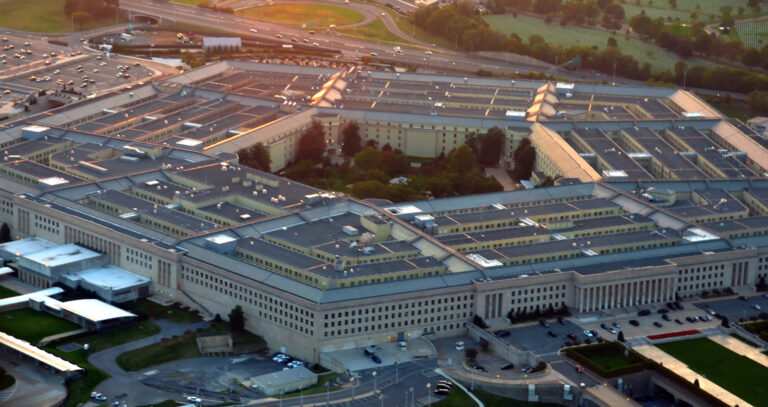
This article was originally published by Radio Free Asia and is reprinted with permission.
Gen. C.Q. Brown, the chair of the U.S. Joint Chiefs of Staff, spoke with his Chinese counterpart, Gen. Liu Zhenli, in a video call on Thursday morning, putting an end to an almost 18-month-long freeze on direct talks between the leaders of the world’s two biggest militaries.
The generals “discussed a number of global and regional security issues,” a Pentagon readout said, and “the importance of working together to responsibly manage competition, avoid miscalculations, and maintain open and direct lines of communication.”
“Gen. Brown reiterated the importance of the People’s Liberation Army engaging in substantive dialogue to reduce the likelihood of misunderstandings,” it said, adding that top U.S. general “remains open to constructive dialogue” with his Chinese counterparts.
American military leaders had complained that China’s top generals were not picking up the phone, even amid an uptick in near-accidents between the two armed forces over the South China Sea and the Taiwan Strait, which spurred predictions of an accidental war.
Direct communications were severed by China’s military leaders following then-U.S. House Speaker Nancy Pelosi’s visit to Taiwan in August last year, which led to nearly a year of animosity between Beijing and Washington that finally began to ebb around June.
Chinese President Xi Jinping’s visit to San Francisco last month for the Asia-Pacific Economic Cooperation summit and his face-to-face talks with U.S. President Joe Biden on the sidelines of the event then led to a pledge from both leaders to reinstate direct military talks.
Biden said after the talks that he hoped the resumption would lead to fewer incidents of brinkmanship and near-accidents over water.
“That’s how accidents happen. Misunderstandings,” he said of the months of no communication between the two militaries. “So we’re back to direct, open, clear communications on a direct basis.”
Status quo ante
Pentagon spokesperson Brig. Gen. Pat Ryder called the talks a “positive development” but said he could not comment on whether the Chinese side had been receptive to U.S. appeals to revive a special “hotline” for leaders of the two militaries to talk at short notice.
“We’re clearly working here to implement what was announced by President Biden and Chairman Xi in November,” Ryder said.
“We’ve said all along that when you have two large militaries, it’s imperative that we keep lines of communication open in order to prevent miscalculation and the potential that carries with it as far as risk of operating in certain areas,” the spokesman said.
The readout from the Pentagon also said that Gen. Brown stressed the need to return to the annual Defense Policy Coordination Talks between lower-level U.S. and Chinese military officials, which were also canceled by Beijing in the wake of Pelosi’s Taiwan trip last year.
Gen. Brown also called for the resumption of direct talks between the commander of U.S. Indo-Pacific Command, which is headquartered in Hawaii, and the commanders of the equivalent Eastern and Southern Theater Commands of China’s People’s Liberation Army.
However, it did not say whether Gen. Liu agreed to a resumption.
The United States has also sought direct talks between Defense Secretary Lloyd Austin and his Chinese counterpart, who until October was the now-fired but not replaced Gen. Li Shangfu. Gen. Li had refused to talk with Austin until U.S. sanctions against him were lifted, and it is unclear when Xi will appoint his replacement.
A Pentagon official told reporters that the call between Gen. Brown and Gen. Liu was a good starting point for improved military ties.
“It’s … an important step, but it’s not the last step,” the official said.
0 comments :
Post a Comment